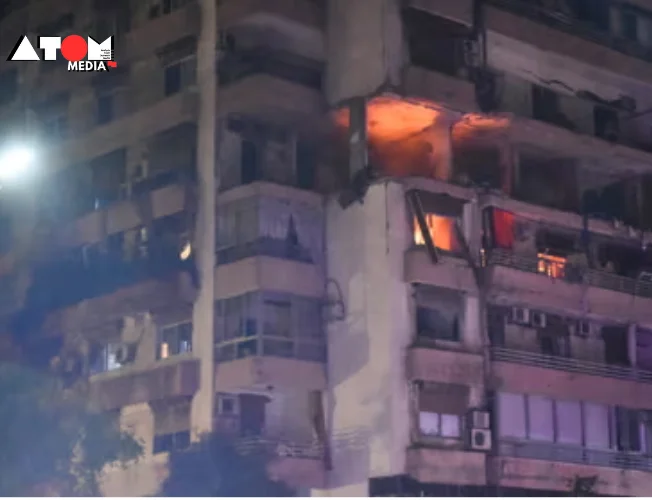In a significant escalation of the ongoing Israel-Hezbollah conflict, Prime Minister Benjamin Netanyahu authorized an airstrike on a residential area in Beirut, resulting in two fatalities. This strike highlights Israel’s steadfast refusal to consider a ceasefire, as military reports confirm the killing of additional high-ranking Hezbollah leaders amidst significant losses for the Iran-backed militia.
A Deadly Airstrike in Beirut
On September 29, Israel conducted its first airstrike on a central Beirut residential building since the conflict reignited on October 7, 2023. This multi-story building, located in a predominantly Sunni district filled with shops and residential properties, became the focal point of a military operation that underscores Israel’s shifting strategy in targeting Hezbollah’s presence.
The Impact on Hezbollah Leadership
The latest airstrike comes on the heels of a significant blow to Hezbollah’s command structure, with the Israeli military confirming the deaths of seven key Hezbollah leaders over the past week, including the recently targeted deputy head of Hezbollah’s Central Council, Nabil Kaouk. The military reported that Kaouk was killed on September 30, further intensifying the losses for the militant group, which has been under heavy attack in recent weeks.
Casualties and Damage Reports
According to reports from the Lebanese health ministry, the recent airstrikes have resulted in over 105 deaths across Lebanon, with 32 lives lost in two strikes near the southern city of Sidon alone. The ongoing military operations have particularly devastated Hezbollah, with Israel claiming that more than 20 militants, including a commander responsible for the security of the now-deceased Hezbollah Chief Hassan Nasrallah, have been eliminated.
Broader Military Actions
In addition to the strike in Beirut, Israel has expanded its military operations to include targets in Yemen. On the same day, the Israeli military claimed it struck Houthi targets in Hodeida, targeting power plants and seaport facilities in response to recent attacks directed at Israel.
Calls for Ceasefire and De-escalation
Amidst the escalating violence, the Gulf Cooperation Council (GCC) has urged for an immediate ceasefire and a de-escalation of hostilities along Lebanon’s southern borders. Secretary-General Jassim Mohammed Al-Budaiwi emphasized the GCC’s ongoing support for the Lebanese people and called for measures to protect civilians and prevent further escalation of the conflict.
Key Updates Summary
- Airstrike in Beirut: Israel’s first strike in Beirut during the current conflict resulted in two deaths.
- Hezbollah Leadership Losses: Seven high-ranking Hezbollah officials have been killed in the past week.
- Increased Casualties: Over 105 individuals have been reported killed in Lebanon due to ongoing airstrikes.
- Expanded Operations: Israel has targeted Houthi positions in Yemen in response to perceived threats.
- GCC Response: Calls for a ceasefire and de-escalation have been made by the Gulf Cooperation Council.
Read more: Marketing News, Advertising News, PR and Finance News, Digital News





